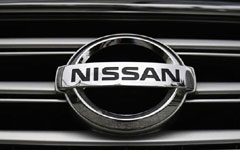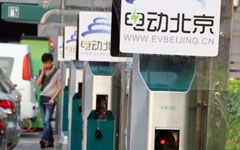The exposure put pressure on supervisors including the Ministry of Industry and Information Technology, the 21st Century Business Herald reported.
The report said the ministry immediately investigated the issue and "thoroughly reexamined" statistics from automakers and all six authorized testing agencies.
Automakers have been required to pass fuel consumption tests since the ministry made them mandatory in 2009.
|
 |
|
 |
Passenger vehicles in China on average now consume 7.38 liters of fuel per 100 km, according to the China Business Times.
It said lowering the figure to 5 liters in 2020 will be a big challenge as average fuel consumption decreased only 1.3 percent year-on-year from 2006 to 2012.
To meet the 2020 target, automakers will have to improve fuel efficiency by 6.7 percent annually from 2016 to 2020, said the report, citing statistics from US financial research firm Bernstein.
Under such circumstances, many automakers are stepping up efforts to roll out new-energy models in the next few years.
At the 2014 China Auto Forum in late April, major Chinese brands including BAIC and GAC said efficiency initiatives are now affecting future plans. During the forum, FAW revealed its roadmap for new-energy vehicles and goals at different stages.
But the China Business Times said a recent survey of auto industry insiders indicates 75 percent of respondents agree the most practical choice in the near future is more efficient traditional technologies.
Fewer than 20,000 hybrid and pure electric vehicles were sold in 2013, accounting for about 0.2 percent of the total vehicle sales in China.
It might take such vehicles at least 15 years to gain a 10 percent market share, Zhao Fuquan, head of the auto industry research institute at Tsinghua University, told the China Business Times.
Against that backdrop, technologies such as turbocharged engines are expected to gain in popularity.
Turbochargers can improve the efficiency of gasoline engines by 20 percent and double that for diesel engines, according to turbocharger maker Honeywell.
The number of new vehicles sold with turbocharged engines in China is projected to double from 5 million in 2013 to 10 million in 2018.
